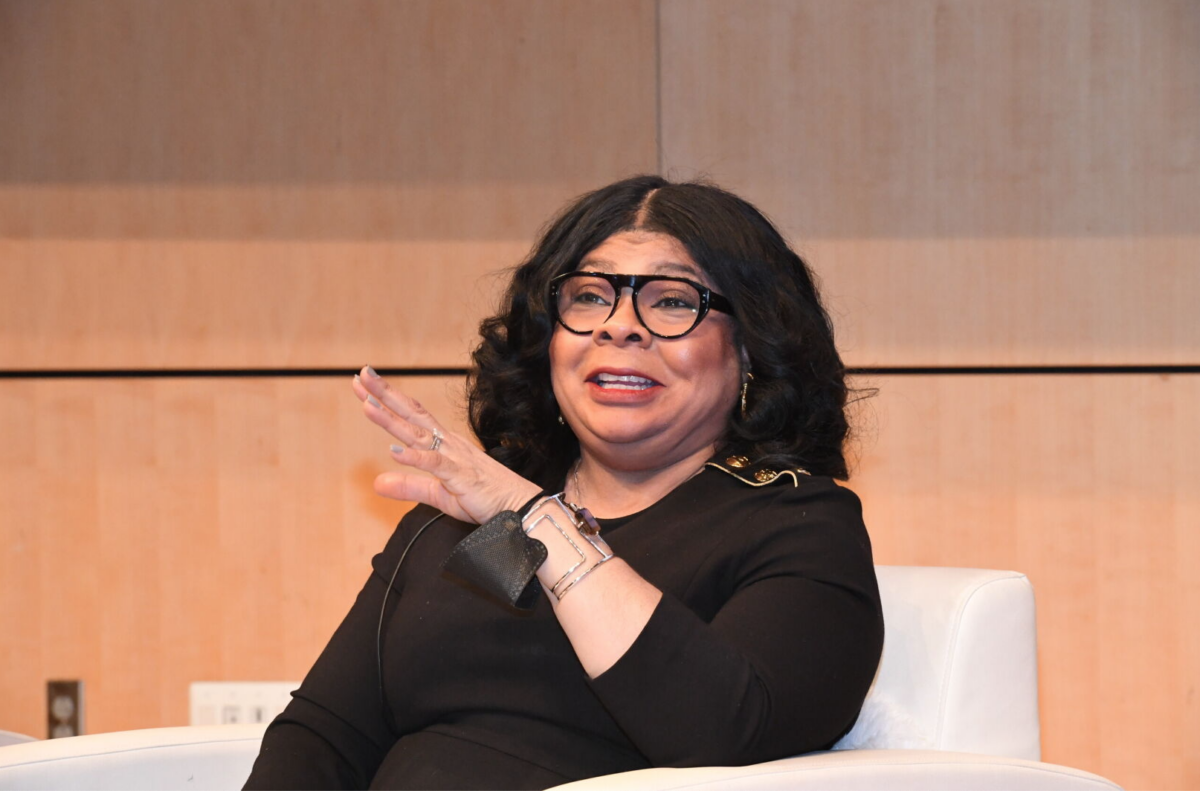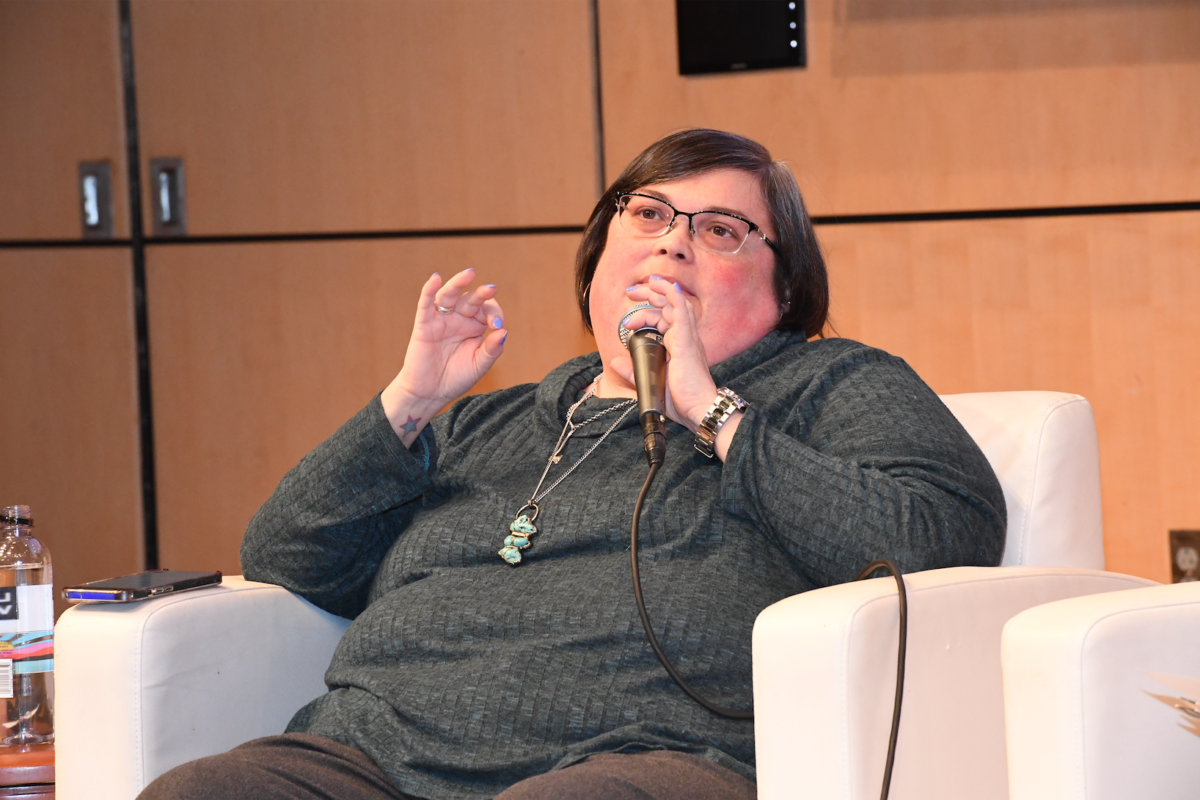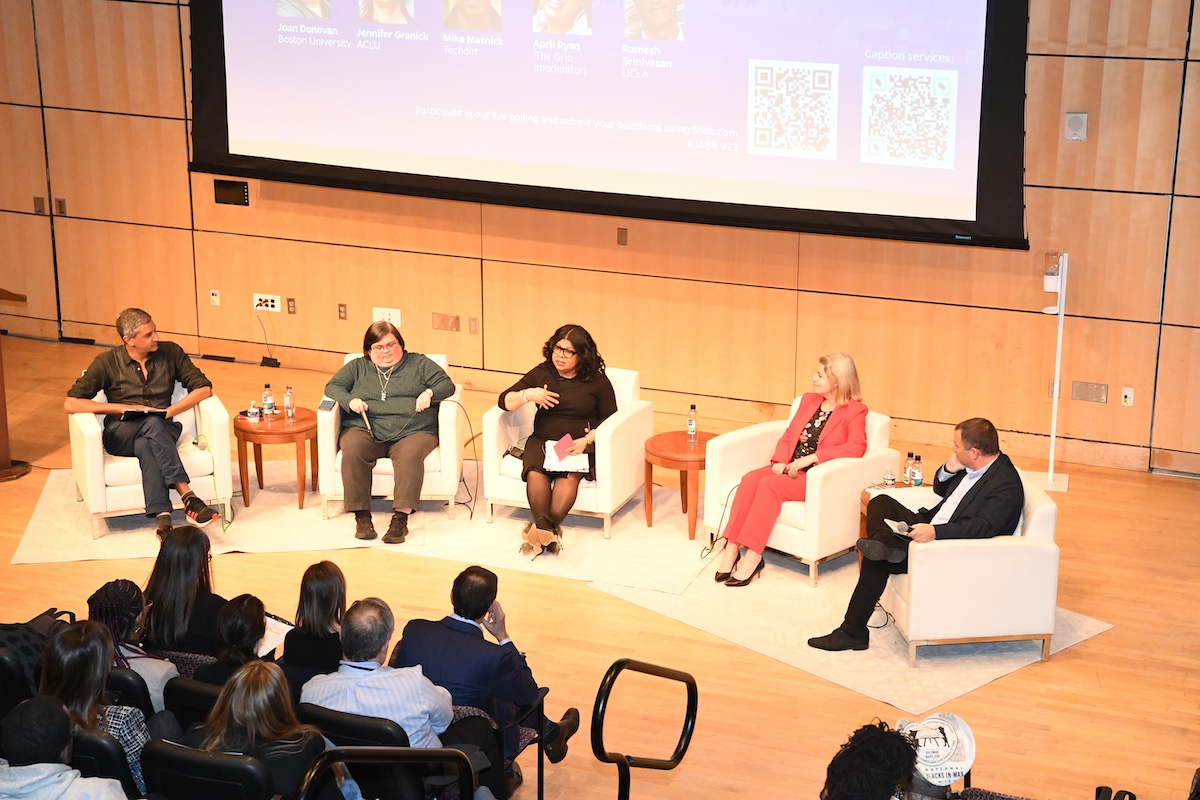Since 2017, the SNF Agora Institute at Johns Hopkins University (JHU) has aimed to strengthen global democracy through civic engagement and inclusive dialogue, offering university courses, public programs and fellowships.
Last week, the institute held the Elijah E. Cummings Democracy and Freedom Festival at the Reginald F. Lewis Museum to further this aim.
The event culminated in a debate revolving around the complex relationship between truth, technology and democracy in the digital age.
“I think it’s fair to say that a healthy democracy hinges on the ability of any individual to hear and to be heard in the marketplace of ideas,” said Hopkins’ president Ronald J. Daniels in his event introduction.
Moderated by The Grio’s White House correspondent April Ryan, the conversation touched on multiple issues.
How much responsibility do social media companies bear in addressing issues on their platforms? What are the social and mental health implications of online interactions? How should government regulation work with regard to the internet? What can we learn from the intersection of social media, activism and marginalized communities?
These issues and more were discussed by the panelists:
- Joan Donovan, a Boston University journalism professor and founder of a nonprofit that “organizes advocacy for a public interest internet”
- Jennifer Granick, of the ACLU’s Speech, Privacy, and Technology Project
- Mike Masnick, editor of Techdirt
- Ramesh Srinivasan, UCLA professor and director of its UC Digital Cultures Lab.
At one point, Donovan offered a solution for disinformation on the web, one that would involve some old-school classification work.
“We need 10,000 librarians dispatched to the internet immediately,” Donovan said, to sort and collate and make sense of knowledge online. “We actually need a public works mindset to think about building the web we want.”
While not many other concrete solutions were offered, here are some insights from the discussion.
Speech and privacy online
As moderator, Ryan started by asking Techdirt’s Masnick to explain Section 230 of the Communications Decency Act, noting many people might not be aware of its existence.
“The easiest way to understand Section 230 is that you put the liability in the blame for any speech that violates the law on the speaker,” Masnick said, “and not the platform that hosts the speech.”
It basically means, he added, that whoever causes the problem is the one on whom authorities are most likely to place any legal consequences. Without Section 230, he said, platforms wouldn’t want to allow people freedom to post what they want for fear of liability.

Srinivasan, of UCLA, reminded attendees about the Cambridge Analytica scandal as an example of how platforms enable third parties to potentially manipulate the data collected about individuals, and elaborated on the possibility of danger with psychographic algorithms.
“All that data is being gathered and sculpted to target us based on our psychological predispositions in a complex way that can influence us not to want to vote, which is actually potentially a crime,” he said, adding that data brokers aren’t legal in the European Union.
Advocates are working to change US laws, said Granick, of the American Civil Liberties Union.
“The ACLU supports a comprehensive privacy regulation, which we don’t have in this country, in order to protect people’s information,” she said, “I think it would make everybody feel a lot better, that they’re not being manipulated or brainwashed or anything.”
Social and mental health
Srinivasan, who established his digital culture lab back in 2015, suggested that civic literacy, along with media literacy, is important, so people can understand and navigate the internet without damaging their health.
He highlighted studies that indicate increased feelings of isolation and loneliness, particularly among vulnerable groups such as young women, queer individuals, and people of color.
Boston University professor Donovan noted that online and in-person worlds can no longer be thought of as separate.
“The internet is real life,” Donovan said. “It’s real life. For a lot of us that grew up queer and different and needing to find community outside of our suburbs. The internet has always been real life for someone like me.”
The environment has become more toxic over the past decade, she suggested.
“If you [got] on social media like I did, during 2011, it’s vibrant, it’s full of activists, there’s even a couple journalists there. It’s great. If you’re white, and if you’re older, if you have money to spend, if you’re a man, lots of pornography for everyone,” Donovan said.
“But at this stage, we have a few billionaires in charge of our mass communications. Transphobia is one of the most prolific issues on X that does not get addressed in any specific way.”
Government
Later, Donovan hinted at some upcoming research on network incitement, suggesting that better platform moderation could potentially have stopped the Jan. 6 insurrection.
“What happens when all of your friends say we’re going to go to this thing, and we’re going to plan for that thing by talking about the guns that we’re going to bring, we’re going to plan for that thing for talking about the kinds of body armor that we’re going to,” the BU journalism professor said, “where we’re gonna go to that event planning to essentially stop Congress from certifying an election.”

She acknowledged that historical revolutions, such as those led by Martin Luther King Jr., did not rely on technology like computers. However, she said, modern networked social movements may require moderation.
ACLU lawyer Granick pushed back on the idea that more regulation is better.
“I think I’ve demonstrated that the government is a dangerous regulator,” she said. “Governments don’t want you to talk about gay people. They don’t want you to talk about systemic racism. They don’t want you to talk about abortion. They don’t want you to talk about how many people died in Hurricane Katrina because of incompetence.”
Granick offered that Donovan could take up her grievance with her statement with the Department of Justice, who charged more than 1,069 defendants in nearly all 50 states for the attack on the US Capitol.
“Those activities are illegal, that is conspiracy,” Granick said, “and many of the — not many of, [but a] number of Jan. 6 people have been prosecuted and convicted for conspiracy.”







